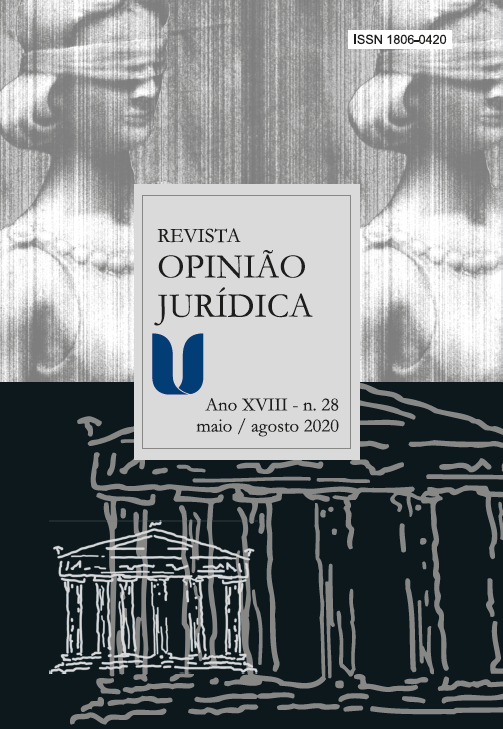THE LIMITS AND POSSIBILITIES OF THE NATION-STATE IN PROMOTING DECENT WORK AT THE UNITED NATIONS AGENDA 2030
DOI:
https://doi.org/10.12662/2447-6641oj.v18i28.p115-144.2020Keywords:
Decent work, Multidimensional sustainable development, 2030 Agenda, Nation-StateAbstract
The United Nations (UN), in its latest global governance project, envisions the balanced performance of social, economic, environmental and political goals as the key to sustainable planetary development. Decent work, due to its emancipatory potential and affirming the human dignity, plays a strategic role in this process, deserving mention in the eighth Sustainable Development Goal (SDG). In this sense, this article verifies the limits and possibilities of the nation-state in performing decent work under the United Nations Agenda 2030, through bibliographic research, adopting the deductive method. The results show that while the nation-state can advance decent work through the adoption of broad public policies, the strengthening of small businesses, supporting solidarity economy initiatives, legislative reforms, and the enhancement of labor supervision, such success needs the convergent action of other actors, especially those representing economic interests, such as transnational corporations.
Published
How to Cite
Issue
Section
License
CESSION OF COPYRIGHTS
The submission of articles to analysis for publication on Opinião Jurídica implies the author(s) transfers copyrights to Centro Universitário Christus – UNICHRISTUS for reproduction, publicizing, distribution, printing and publication, according to the Publication Norm 414R, Opin. Jur., Fortaleza, year 12, n. 16, p.1-414, Jan./Dec. 2014, costs to be bore by UNICHRISTUS, in whatever format or means that may or shall exist, in accordance to articles 49 and following of Federal Law 9.610/98.
1. In ceding copyrights, the author(s) agrees to do so in exclusivity, free of charge and for the totality of the work.
2. UNICHRISTUS may make the work, in its entirety or in parts, available for scholarly purposes, without altering its contents, except for small corrections that are deemed necessary.
3. The cession of copyrights is valid in all countries and for versions of the material in its original language or translated into a foreign language.
RESPONSIBILITY FOR THE CONTENT
By submitting an article, the author(s) declare to have sole responsibility for the content of the piece and is(are), therefore, responsible for any judicial or extrajudicial measures referring to it.
1. In case of joint authorship, all authors are considered collectively responsible, except when proved otherwise.



















